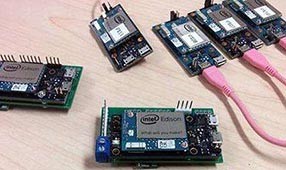Harvard University's John Paulson School of Engineering and Applied Science (SEAS) issued a press release on the 24th, saying that a research team at the college has developed a new 3D printing technology that can print organ chips with integrated sensing capabilities. The first time they print out a heart chip that can be quickly assembled and customized, making data collection easier and opening up a new path for drug research. Related research was published in the journal Nature·Materials.

Organ chip is considered to be a revolutionary technology in life science research, and has broad application prospects in the fields of medicine, scientific research and clinical drug design. However, the manufacture and data collection of organ chips is not an easy task. Not only is the manufacturing environment extremely demanding, but the manufacturing process is also very complicated, costly and time consuming.
This time, the SEAS research team used advanced digital manufacturing technology to develop new methods for organ chip manufacturing. They integrated flexible strain sensors with human tissue microarchitectures and developed six different "inks", which then used 3D printing technology to print out the heart chip through a single, continuous manufacturing process. There are many “small wells†on this chip, and each “small well†has independent organization and integrated sensors. With this chip, a variety of heart tissues can be studied.
For a long time, researchers have not been able to obtain simple non-invasive means to study the function of heart tissue. It is difficult for them to continuously observe the slow changes in the development of heart tissue for a long time, and carry out corresponding data collection and research. The heart chip provides a new approach to research that integrates sensors to continuously collect data during tissue growth. To demonstrate the efficacy of the chip, the team conducted a drug study and a heart tissue contraction expansion study that lasted for several weeks. The results showed that the heart chip performed well.
Researchers say the new approach integrates multiple functional materials onto a single device and is a huge advancement in 3D printing technology. The new programmable organ chip manufacturing method not only allows researchers to easily design custom-made organ chips that match specific diseases or even individual patient cells, but also greatly simplifies data collection for in vitro tissue engineering, toxicology and drugs. Screening research has opened up new avenues.
The machine is hard or soft, and as the material progresses, the soft machine will become more and more popular, especially the chip that can be attached to the meat. In the future, chip consumables that can monitor 3D printing of organs may cost only one dollar, design and manufacturing cycles will be greatly shortened, and our human scientific knowledge reserves will explode, and we will live healthier and safer.
(Editor)
Latex, poket spring, Mattresses
Foshan Goodnight Mattress Co.,Ltd , https://www.goodnight1986.com